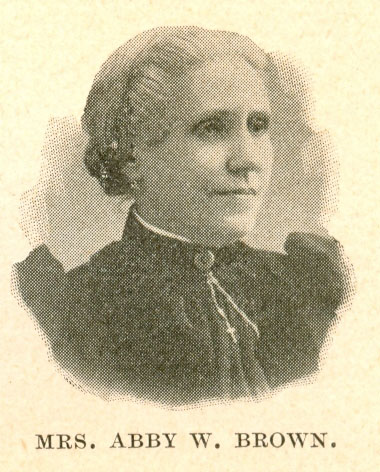Archive:The Descendants of John Whitney, page 296
Archives > Extracts > Archive:The Descendants of John Whitney > The Descendants of John Whitney, page 296
The Descendants of John Whitney, Who Came from London, England, to Watertown, Massachusetts, in 1635, by Frederick Clifton Pierce (Chicago: 1895)
Transcribed by the Whitney Research Group, 1999.
| Previous page | Next page |
| 296 | WHITNEY GENEALOGY. |
4451. i. HENRY, b. Apr. 5, 1821; m. Martha R. HASTINGS and Francina A. HASTINGS. 4452. ii. JOSEPH, b. Apr. 10, 1823; m. Louisa NUDD. 4453. iii. JAMES, b. Jan. 27, 1828; unm.; res. San Francisco, Cal. He has resided in California for nearly forty-three years, having gone there in July 1851, and has been one of the most generous of sons. He has been closely identified with one of the largest wholesale establishments in San Francisco for nearly forty years, that of Holbrook, Merrill & Stetson, at Market and Beale streets, which is of itself a sufficient endorsement of his ability and faithfulness. He is a most indefatigable worker, few men having applied themselves so unremittingly to business for a term of fifty years. 4454. iv. ABBY, b. Aug. 20, 1830; m. Sept. 17, 1854, Walter BROWN; res. La Crosse, Wis. He is a merchant and was b. Jan, 9, 1829. Had two
children, both died in infancy. Mrs. Brown is an authoress of considerable merit and ability, and her work "Can She Atone?" is an honor to the author. Mr. Brown's book on "Mitylene," a tale of New England and the tropics, is a highly meritorious work. Mr Brown was assisted in the latter literary effort by his wife. 4455. v. THOMAS, b. Oct. 1, 1825; m. Mary L. CLARK. 4456. vi. CHARLES FRED'K, b. Nov. 13, 1819; d. unm. Jan. 28, 1880. 4457. vii. SARAH, b. Nov. 24, 1817; m. Jan. 21, 1845, Francis M. RUBLEE of Racine. She d. Oct. 24, 1859, leaving one son, F. M.; res. No. Loup, Neb. 4458. viii. SUSAN, b. Nov. 24, 1817; m. Dec. 3, 1846, Sidney A. SAGE of Racine, and d. Sept. 4, 1857, leaving four children. 2199. PAUL WHITNEY (Paul, Aaron, Moses, Moses, Richard, John), b. in West- field, Mass., Apr. 16, 1789; m. in Boston, Oct. 1, 1820, Lucy Cushing STONE, b. Feb. 15, 1785; d. Shrewsbury, Mass., Sept. 15, 1853. Paul WHITNEY, for about a quarter of a century a well known Boston merchant, and head of the mercantile firm of WHITNEY, HASKELL & Co., was a son of Dr. Paul WHITNEY of Westfield, Mass., a physician and a graduate of Harvard College. He died when his son was six years of age, and left his wife in moderately comfort- able circumstances. She was not enabled to give her son the advantages of a colle- giate education, which he greatly desired, and which his father and grandfather had enjoyed before him. He fitted for college, however, at the academy in West- field, and when still a youth went to Boston, and in a short time embarked upon his mercantile career. There seems to be a little discrepancy about his age when he died; but from data furnished by himself, in one of his letters, and from the gene- alogy before me, I have come to the conclusion that he was born in 1789, died in Shrewsbury, Mass., Mar. 14, 1854, and was 65 years of age at the time of his death. Paul WHITNEY was tall of stature, erect and manly looking; and his whole appear- ance gentlemanlike and imposing. He was scrupulously neat and orderly in his dress and personal habits and wore the white neckerchief and ruffles not unfre- quently seen upon the elderly merchants of his day. He was a man of noble and stately presence; with the dignified bearing, and graceful urbanity of manners, so eminently characteristic of the "gentlemen of the old school." About the beginning of his business career he contracted a severe cold which settled in his head and terminated in an incurable deafness. His children never spoke to their father without approaching his person and speaking in his ear. His deafness altogether precluded his hearing conversation in the social circle and even preaching of the gospel, which latter deprivation, in particular, was a severe trial. But he had learned in early life to look upon all the troubles and trials of life as so many blessings in disguise, brought upon mankind for the purpose of weaning them from the world and fixing their thoughts and attention upon a better world above; and to this afflicting dispensa- tion of Divine Providence he bowed with Christian patience and resignation. His genial hospitality was proverbial among his friends; few things yielded him more
| Previous page | Next page |
Copyright © 1999, 2006 The Whitney Research Group
